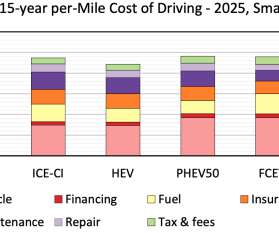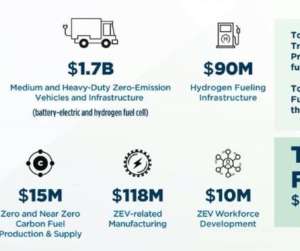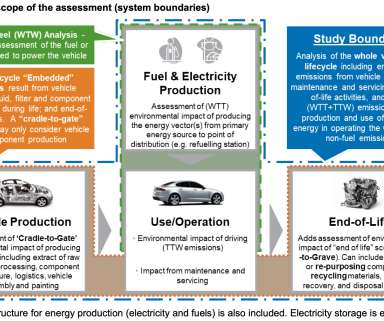DOE labs study on costs and benefits of new transportation technologies the most comprehensive to date
Green Car Congress
AUGUST 14, 2021
Levelized cost of driving (LCOD) across powertrains for light-duty SUV, MY 2025. There has been a lot of past research on the cost of vehicles and the cost of fuel, but these other operating costs haven’t been studied in quite the same detail before. Battery electric vehicles, meanwhile, will reach cost parity as battery prices drop.









































Let's personalize your content